I will be presenting two sessions at the PASS Summit 2016 in Seattle, WA, which is being held October 25-28, 2016.
On Monday, October 24, 2016, I will be doing an all-day, Pre-Conference session on how to interpret my SQL Server diagnostic information queries. I have done many shorter versions of this session (such as 60 minutes, 75 minutes, or even a half-day) before, but I have always felt a little rushed as I went through the complete set of diagnostic queries, explaining how to interpret the results of each one, and also talking about related information that is relevant to each query.
Now, I will have a full day to go into more detail, without having to hurry to cover everything. I will be using the SQL Server 2016 version of the diagnostic queries, which have even more useful information, including information about many new SQL Server 2016 features. If you are on an older version of SQL Server, most of the queries will still be relevant (depending on how old of a version of SQL Server you are using).
Based on past experience and feedback, Dr. DMV has always been a very popular session that people really seem to enjoy. This all-day, expanded version is going to be really fun and useful, and I hope to see you there!
Dr. DMV: How to Use DMVs to Diagnose Performance Problems
SQL Server 2005 introduced Dynamic Management Views (DMVs) that allow you to see exactly what is happening inside your SQL Server instances and databases with much more detail than ever before. SQL Server 2016 adds even more capability in this area. You can discover your top wait types, most CPU intensive stored procedures, find missing indexes, and identify unused indexes, to name just a few examples. This session (which is applicable to SQL 2005-2016), presents and explains over seventy DMV queries that you can quickly and easily use to detect and diagnose performance issues in your environment. If you have ever been responsible for a mission critical database, you have probably been faced with a high stress, emergency situation where a database issue is causing unacceptable application performance, resulting in angry users and hovering managers and executives. If this hasn’t happened to you yet, thank your lucky stars, but start getting prepared for your time in the hot seat. This session will show you how to use DMV queries to quickly detect and diagnose the problem, starting at the server and instance level, and then progressing down to the database and object level. This session will show you how to properly analyze and interpret the results of every single query in the set, along with lots of information on how to properly configure your instance and databases.
This is a regular, 75 minute session that will be all new content, going into much deeper detail about the SQL Server related factors of current server hardware, and how to go about selecting the best database server hardware for your workload and budget. I want to show you how to pick hardware that gives you the best performance possible while minimizing your SQL Server license costs, saving your organization a huge amount of money!
Hardware 301: Diving Deeper into Database Hardware
Making the right hardware selection decisions is extremely important for database scalability. Having properly sized and configured hardware can both increase application performance and reduce capital expenses dramatically. Unfortunately, there are so many different choices and options available when it comes to selecting hardware and storage subsystems, it is very easy to make bad choices based on outdated conventional wisdom. This session will give you a framework for how to pick the right hardware and storage subsystem for your workload type. You will learn how to evaluate and compare key hardware components, such as processors, chipsets, and memory. You will also learn how to evaluate and compare different types of storage subsystems for various database workload types. Gain the knowledge you need to get the best performance and scalability possible from your hardware budget!
The PASS Summit is always a fun and very useful and educational event. It is a great way to get to know more people in the SQL Server community and to connect with people that you may only know online.
You can register for the PASS Summit 2016 here.
